 For those of you unaware, plagiarism is rampant. Be it Maureen Dowd (a liberal) or Ann Coulter (a conservative), plagiarism happens, and it happens frequently. I read blogs regularly, and it is not a surprise that people try to dismiss plagiarism accusations due to misguided attempts from political opponents to discredit individuals. I have said before that plagiarism knows no political boundaries. The definition of plagiarism is clear.
For those of you unaware, plagiarism is rampant. Be it Maureen Dowd (a liberal) or Ann Coulter (a conservative), plagiarism happens, and it happens frequently. I read blogs regularly, and it is not a surprise that people try to dismiss plagiarism accusations due to misguided attempts from political opponents to discredit individuals. I have said before that plagiarism knows no political boundaries. The definition of plagiarism is clear.
According to the Merriam-Webster Online Dictionary, to “plagiarize” means
* to steal and pass off (the ideas or words of another) as one’s own
* to use (another’s production) without crediting the source
* to commit literary theft
* to present as new and original an idea or product derived from an existing source.
Kaavya Viswanathan claims crypt-amnesia (a new and controversial term). It seems that you can internalize content to the extent that you can assume ownership? Chris Anderson claims that publishers requested he abandon the footnotes for references to Wikipedia in “Free: The Future of a Radical Price.” Do citation aesthetics forgive the omission of standard citations to Internet resources? The Daily Kos calls Ann Coulter a “lazy, unimaginative writer,” in response to plagiarism accusations where her book and LA Times columns are concerned.
Where am I going with all this? People of all political bents have been found to have plagiarized. Rather than politicize plagiarism issues, we should be focusing elsewhere in order to mitigate misconduct. I do not argue that we are “standing on the shoulders of giants” (many attribute this to Newton), but the fact is that it is reasonable to seek out readily available resources to avoid the pitfalls of plagiarism (see http://www.plagiarism.org). Writing is an art, and it deserves the respect that any form of artistic expression deserves. I include scholarly research as perhaps the most important form of writing, as this form generally has greater potential to influence the world we live in today. But be it scholarly research, or any other writing, recognize those that impacted your efforts and pride yourself on the originality of your content. Cite and cite often.
 A recent report about the University of Nottingham states that instances of plagiarism within the school have risen nearly 700% since 2004. The records filed through the Freedom of Information act seem to highlight an alarming increase in students submitting plagiarized work.
A recent report about the University of Nottingham states that instances of plagiarism within the school have risen nearly 700% since 2004. The records filed through the Freedom of Information act seem to highlight an alarming increase in students submitting plagiarized work.
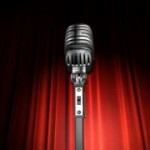 Comedians have been facing problems with a recent surge in internet plagiarism. Stand up comics make their livings through their jokes. Just as a writer creates a story – short or long – comedians spend countless hours crafting their humor and honing their jokes for the sole purpose of raucous laughter upon delivery.
Comedians have been facing problems with a recent surge in internet plagiarism. Stand up comics make their livings through their jokes. Just as a writer creates a story – short or long – comedians spend countless hours crafting their humor and honing their jokes for the sole purpose of raucous laughter upon delivery. 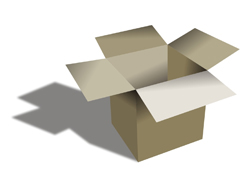 One factor that makes the internet such a powerful information tool is its open nature.
One factor that makes the internet such a powerful information tool is its open nature. 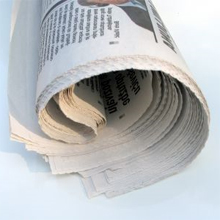 The Hartford Courant came under fire earlier this month for plagiarizing the stories of several of their competitors, including the Bristol Press and Britain Herald.
The Hartford Courant came under fire earlier this month for plagiarizing the stories of several of their competitors, including the Bristol Press and Britain Herald. 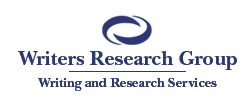
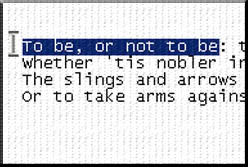 There is no doubt that a new generation of kids are growing up with the internet as a centerpiece of their lives. Whether it be on Twitter or Facebook, teenagers are expressing themselves more and more via the internet.
There is no doubt that a new generation of kids are growing up with the internet as a centerpiece of their lives. Whether it be on Twitter or Facebook, teenagers are expressing themselves more and more via the internet. For those of you unaware, plagiarism is rampant. Be it Maureen Dowd (a liberal) or Ann Coulter (a conservative), plagiarism happens, and it happens frequently. I read blogs regularly, and it is not a surprise that people try to dismiss plagiarism accusations due to misguided attempts from political opponents to discredit individuals. I have said before that plagiarism knows no political boundaries. The definition of plagiarism is clear.
For those of you unaware, plagiarism is rampant. Be it Maureen Dowd (a liberal) or Ann Coulter (a conservative), plagiarism happens, and it happens frequently. I read blogs regularly, and it is not a surprise that people try to dismiss plagiarism accusations due to misguided attempts from political opponents to discredit individuals. I have said before that plagiarism knows no political boundaries. The definition of plagiarism is clear. Between Google Alerts, Tweet Beeps, general web searches and the like, we spend a good amount of time reading about research misconduct. Pretty standard fare, however, I have seen some debate as to whether authors or editors are responsible for instances of misconduct. I think that more important than appointing blame is taking a proactive role in promoting research integrity. When we partnered with CrossRef to offer a viable content verification technology to STM publishers, we aimed to benefit the entire research community. When we implemented a licensing option for individual researchers, we also aimed to benefit the entire research community. If we all think in terms of the larger communities that we serve, we will all be playing a vital role in promoting integrity in research. In fact, we will be promoting integrity in all things.
Between Google Alerts, Tweet Beeps, general web searches and the like, we spend a good amount of time reading about research misconduct. Pretty standard fare, however, I have seen some debate as to whether authors or editors are responsible for instances of misconduct. I think that more important than appointing blame is taking a proactive role in promoting research integrity. When we partnered with CrossRef to offer a viable content verification technology to STM publishers, we aimed to benefit the entire research community. When we implemented a licensing option for individual researchers, we also aimed to benefit the entire research community. If we all think in terms of the larger communities that we serve, we will all be playing a vital role in promoting integrity in research. In fact, we will be promoting integrity in all things.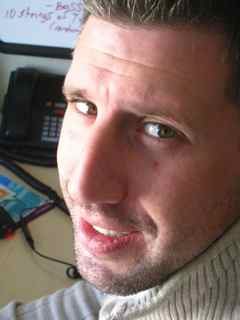 iThenticate is one of iParadigms’s newest and fastest growing content verification services (many will refer to our technology as plagiarism and duplication screening). We work primarily with publishers, but it seems that any organization producing or purchasing content sees value in what we offer. It is our hope that we can more effectively engage both current and prospective users regarding the collaborative development of our service, upcoming releases, candid discussion around issues of content integrity, and any general news from our Oakland office. So we encourage you to comment – good, bad and ugly.
iThenticate is one of iParadigms’s newest and fastest growing content verification services (many will refer to our technology as plagiarism and duplication screening). We work primarily with publishers, but it seems that any organization producing or purchasing content sees value in what we offer. It is our hope that we can more effectively engage both current and prospective users regarding the collaborative development of our service, upcoming releases, candid discussion around issues of content integrity, and any general news from our Oakland office. So we encourage you to comment – good, bad and ugly.